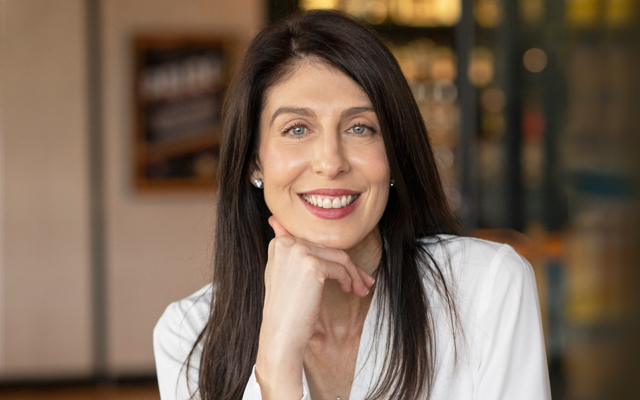Eveline Albarracin, senior vice president and managing director for APAC, Brown-Forman, is the chair for the Asia Pacific International Spirits and Wines Alliance (APISWA). She outlines the association’s vision, which focuses on advocating for fair trade, combating illicit products, and promoting responsible consumption

As chair, what do you hope to achieve for the association during your tenure? What are some of the immediate priorities and objectives?
My key objective is to ensure APISWA continues to lead on issues that matter most to our industry – advocating for fair trade, tackling illicit trade, and advancing responsible business practices.
One of my immediate priorities is to deepen our engagement with policymakers across the region to address regulatory barriers, and foster an environment that supports sustainable growth.
Another critical focus this year is promoting balanced conversations around alcohol and health. This includes addressing the evolving narrative around alcohol consumption, particularly the “no safe level” rhetoric, by advocating for evidence-based policies and working with stakeholders to embed responsible and moderate consumption as part of a balanced lifestyle.
How is the wine and spirit industry doing, and how does it continue to evolve with changing tastes and times?
The wine and spirits industry in Asia-Pacific is dynamic, evolving alongside shifting consumer preferences. Premiumisation continues to be a key trend as consumers seek quality and unique experiences. At the same time, growing interest in sustainability and health-conscious choices is shaping product innovation, from lower-alcohol options to eco-friendly packaging.
There seems to be a lot of movement towards locally-made beverages and buying local. How is the association planning to engage with the smaller boutique wine and spirit makers, perhaps getting them to join the association?
There is room for everyone in the spirits business with a passion for making high-quality drinks!
Most of the issues which our sector faces are common to large and small producers alike; from high or discriminatory taxation and customs duties, marketing regulation and market access barriers which affect our ability to export to the dangers to consumers of illicit products.
While APISWA’s membership is currently made up of global companies, we are always ready to engage with – and support – boutique distillers who would like to get more involved with the regulatory agenda. Through collaboration and knowledge-sharing, we aim to create a stronger, united voice for the industry.
What are some of your members’ main concerns, and what do they want APISWA to do for them? Also, I understand there are 11 members; will we see an increase in numbers in time to come?
Our members’ key concerns include addressing market access issues, combating illicit trade, and navigating the region’s evolving regulatory landscape. They also look to APISWA for guidance on promoting responsible marketing and advancing sustainability goals. One overarching consideration we always promote with policymakers is for policymaking to be evidence-based and data-driven.
We also strongly believe in the value of partnerships, and often seek to collaborate with the broader spirits industry, our suppliers, retailers, governments and civil society in pursuit of our goal to reduce the harmful use of alcohol.
For instance, last year APISWA partnered with retailers and institutional stakeholders in the Philippines to launch “Drink Authentic, Enjoy Responsibly”, a social media-led consumer information campaign that seeks to raise awareness on the dangers of counterfeit alcohol products.
By demonstrating the tangible benefits of collaboration, we aim to attract new members who share our vision for a thriving, responsible industry.
Is that why there is a need for an association such as APISWA to exist?
APISWA plays a critical role in advocating for a balanced and fair regulatory environment that fosters industry growth while safeguarding consumer interests. Our region is diverse, with varying regulatory frameworks and challenges, from illicit trade to restrictive market practices.
This is why APISWA’s upcoming industry conference has been scheduled for March 10-12 in Ho Chi Minh City, Vietnam.
As an industry association, we provide a unified voice to represent our members’ interests and engage with governments and stakeholders to address these challenges.
We also champion sustainability, responsible consumption, and fair trade policies that benefit not only our members but also the communities in which they operate.
Lastly, as a regional association, we provide a bridge between local and global activity, meaning we can share best practices in both directions. For example, we recently showcased our signature “Power of No” responsible drinking campaign with associations from all over the world at the World Spirits Alliance conference in Geneva, Switzerland.
What is your association’s greatest challenge right now, and how do you plan to overcome it?
One of our biggest challenges is navigating the complexities of regulatory frameworks across diverse markets in Asia-Pacific. These challenges are compounded by illicit trade, which undermines legitimate businesses and poses risks to consumers.
To address this, we are intensifying our advocacy efforts, working closely with policymakers to harmonise regulations, and driving awareness about the social and economic impacts of illicit trade. Collaboration is key – we are fostering partnerships with local and international stakeholders to create unified solutions that benefit the industry and the communities we serve.













